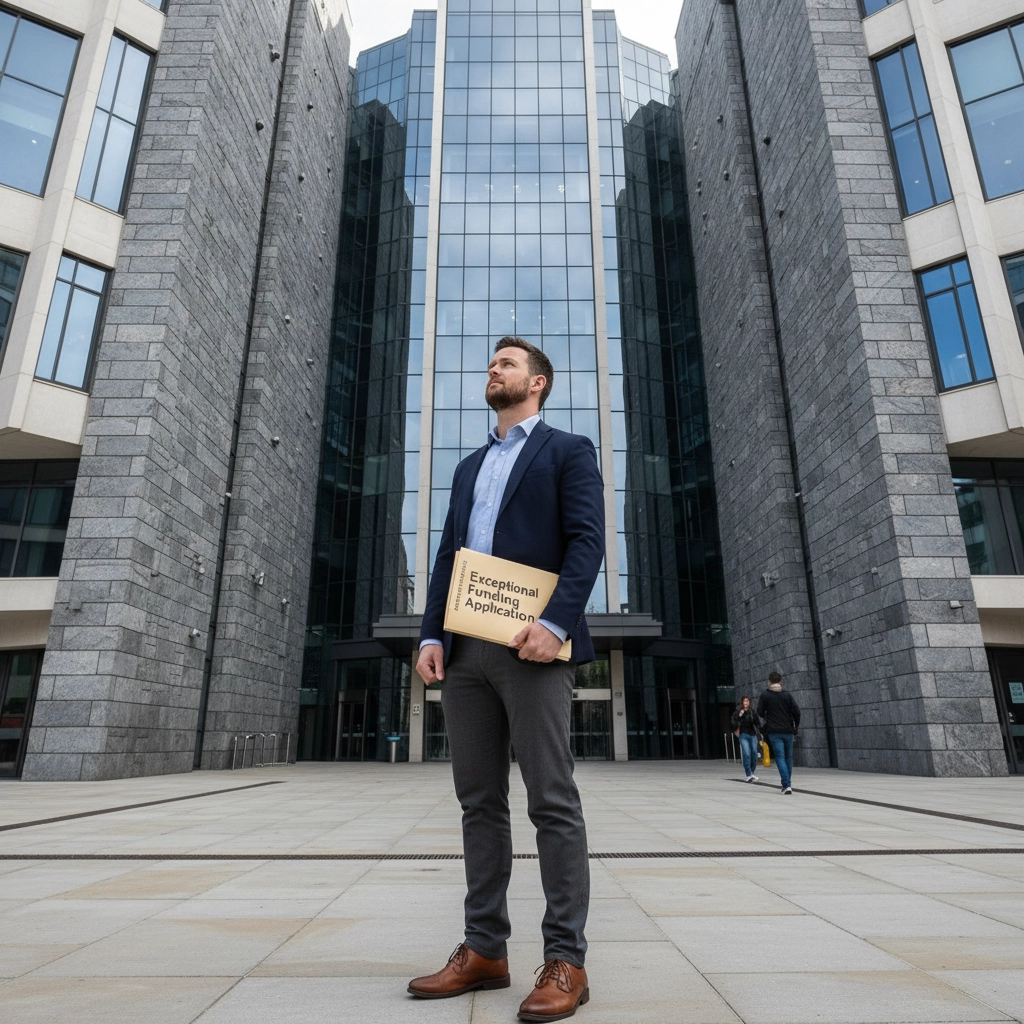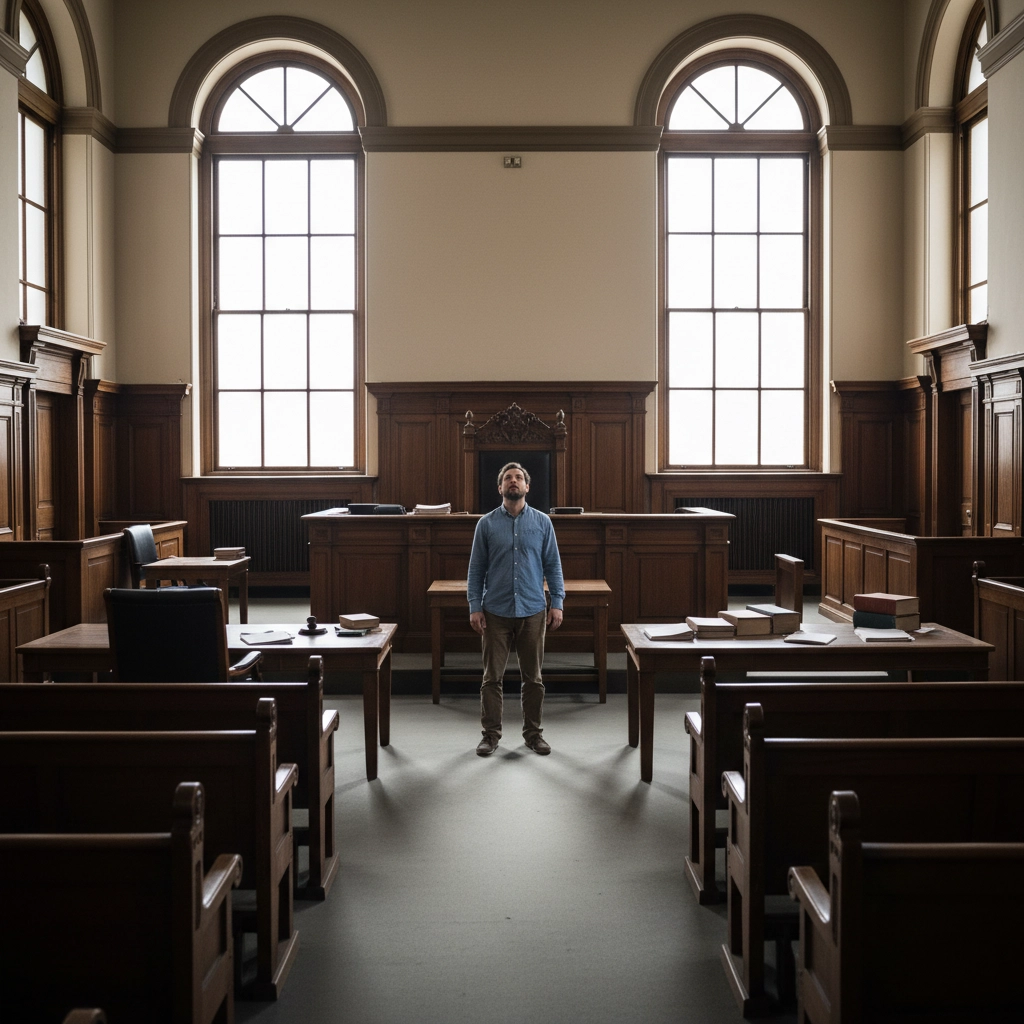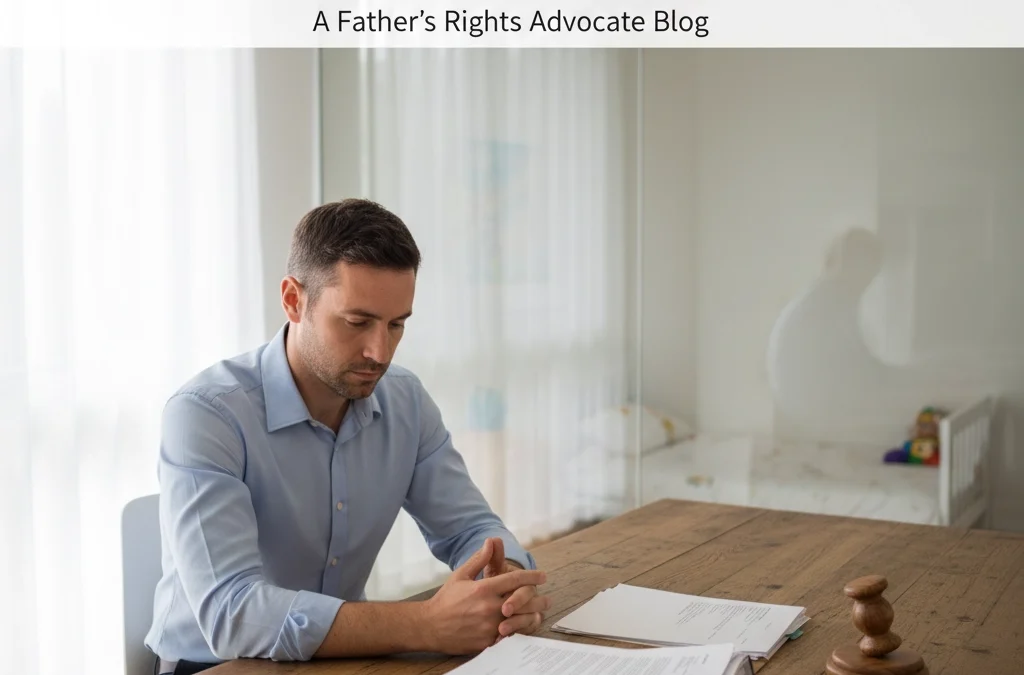When one of Britain's most senior family court judges calls out the government for creating a system that systematically denies justice to ordinary families, we need to listen. Sir James Munby, former President of the Family Division, didn't mince words when he exposed how legal aid cuts have created a two-tier justice system: one for the wealthy, and one for everyone else.
Fathers United. Rights Respected. This isn't just our rallying cry: it's what Judge Munby was fighting for when he took on the government over their devastating legal aid policies.
The Judge Who Wouldn't Stay Silent
Sir James Munby held the highest position in England's family court system. When someone with his authority speaks out, it's not political posturing: it's a warning that the very foundation of justice is crumbling.
Munby identified three critical failures created by legal aid cuts:
- Denial of legal advice and document preparation
- No professional courtroom advocacy for those who need it most
- Inability to bring professional witnesses due to unaffordable fees
These aren't minor inconveniences. They're systematic barriers that make fair trials impossible for ordinary families facing life-changing court proceedings.

The "Exceptional Funding" Myth
The government's answer to widespread legal aid cuts was the "exceptional funding scheme": a supposedly safety net for the most desperate cases. Judge Munby's response? It's a cruel joke.
Processing only 8-9 cases per year despite overwhelming demand, this scheme has become a bureaucratic smokescreen. While thousands of vulnerable families are denied representation, the government points to these handful of approvals as proof the system works.
Every Dad Matters. But under this broken system, only the dads who can afford £400+ per hour legal fees truly get their day in court.
Real Families, Real Consequences
Judge Munby didn't deal in abstract legal theories. He highlighted specific cases that expose the human cost of these policies:
The Swindon Case: A couple with intellectual disabilities faced losing their child to the council. Despite their obvious vulnerability and inability to represent themselves, they were denied legal aid. The state expected them to fight trained council lawyers: alone.
Munby called this "a breach of their rights" and a direct violation of their right to fair trial under Articles 6 and 8 of the European Convention on Human Rights.
The 10-Month Delay: One family waited nearly a year between their child being taken into care and getting a final hearing: purely because of funding issues. Munby described such delays as "unconscionable."

State-Sanctioned Abandonment
Perhaps Judge Munby's harshest criticism came when he accused the government of having "simply washed its hands of the problem."
Think about the fundamental injustice here: The same government that cuts legal aid also uses taxpayer money to fund council lawyers, social services legal teams, and court officials. They stack the deck against families, then claim it's not their responsibility to ensure fair proceedings.
As Munby pointed out, this forces the legal profession to provide charity work to address problems created by state failures. Is this the society we want? Where justice depends on lawyers' goodwill rather than fundamental rights?
The Fathers' Rights Crisis
While Judge Munby's criticism focused on overall access to justice, the impact on fathers has been particularly devastating. Here's why:
Domestic Violence Legal Aid Loophole: Women facing family court proceedings can often access legal aid by claiming domestic violence: even when evidence is thin or non-existent. Meanwhile, fathers facing false allegations or seeking contact with their children are left to represent themselves.
Gender Bias in "Exceptional" Cases: The handful of exceptional funding approvals disproportionately go to cases involving women and children as "victims." Fathers fighting for contact rights or challenging parental alienation rarely qualify.
Complex Procedures, No Help: Family court procedures are incredibly complex. Without professional help, fathers face:
- Confusing court forms and deadlines
- Rules of evidence they don't understand
- Opposing lawyers trained to exploit every procedural mistake
- Judges with limited time and patience for self-represented litigants

Human Rights? Only If You Can Pay
Judge Munby's interventions weren't just about legal technicalities. He was defending fundamental human rights that the government has systematically undermined.
The European Convention on Human Rights guarantees:
- Article 6: Right to fair trial
- Article 8: Right to family life
Yet the legal aid cuts make these rights meaningless for anyone who can't afford private representation. As Munby repeatedly pointed out, this creates situations where fair trials are impossible.
For fathers, this is particularly cruel. The right to family life means nothing if you can't afford to enforce it in court.
The Professional Witnesses Crisis
One of Munby's most damning criticisms focused on professional witnesses. In complex family cases involving child welfare, expert testimony is often crucial: child psychologists, social work professionals, financial experts.
Under the current system, most families can't afford these witnesses. This creates a massive advantage for well-funded parties (usually local authorities with unlimited legal budgets) while leaving ordinary families defenseless.
Fathers fighting for their children face trained social workers, court-appointed experts, and council legal teams: all funded by taxpayers. Meanwhile, they're expected to represent themselves and can't bring their own professional witnesses to challenge biased or incomplete assessments.

The Bigger Picture: System-Wide Bias
While Judge Munby focused on access to justice, his criticisms reveal something deeper: systematic bias built into the family court system.
This bias manifests in several ways:
- Financial barriers that disproportionately affect fathers
- Legal aid policies that favor certain types of cases (usually involving women as "victims")
- Complex procedures that disadvantage self-represented litigants
- Time pressures that favor parties with professional representation
The result? A system where outcomes depend more on financial resources than facts or law.
What Judge Munby Demanded
Judge Munby didn't just criticize: he proposed solutions. He argued that when legal aid is denied in cases requiring fair trial protections, courts should have power to order representation funded by HM Courts & Tribunals Service.
This would ensure that fundamental rights aren't just paper promises, but real protections available to all families regardless of wealth.
He also called for urgent review of the exceptional funding scheme, arguing that 8-9 approvals per year for a scheme covering millions of potential cases proves the system is fundamentally broken.
Standing With Judge Munby's Vision
Fathers United. Rights Respected. Judge Munby's courage in challenging government policy shows what's possible when people in positions of authority refuse to accept injustice.
His fight wasn't just about legal technicalities: it was about ensuring that every family, regardless of wealth, has access to fair proceedings when their most fundamental relationships are at stake.
Every Dad Matters. That includes dads who can't afford £400-per-hour lawyers. It includes dads facing false allegations with no legal support. It includes dads whose children are being kept from them while they struggle through impossible court procedures alone.

The Path Forward
Judge Munby's warnings weren't theoretical: they were urgent calls for reform based on cases he saw destroying families every day.
We need:
- Restoration of legal aid for all family court proceedings
- Reform of exceptional funding to make it genuinely accessible
- Simplified court procedures that don't require professional navigation
- Recognition that father's rights are human rights deserving equal protection
Join the Movement
Judge Munby couldn't reform the system alone, despite his senior position. Change requires all of us: fathers, families, and supporters: demanding better.
Ready to make a difference? Share this post, contact your MP, and join our community fighting for genuine equality in family courts.
The judge who held the highest family court position in England saw the system from the inside and called it broken. Now it's up to us to fix it.
Fathers United. Rights Respected. Every Dad Matters.
Need support navigating the family court system? Visit fathersrights.co.uk for practical guidance and join our community of fathers fighting for their rights.

